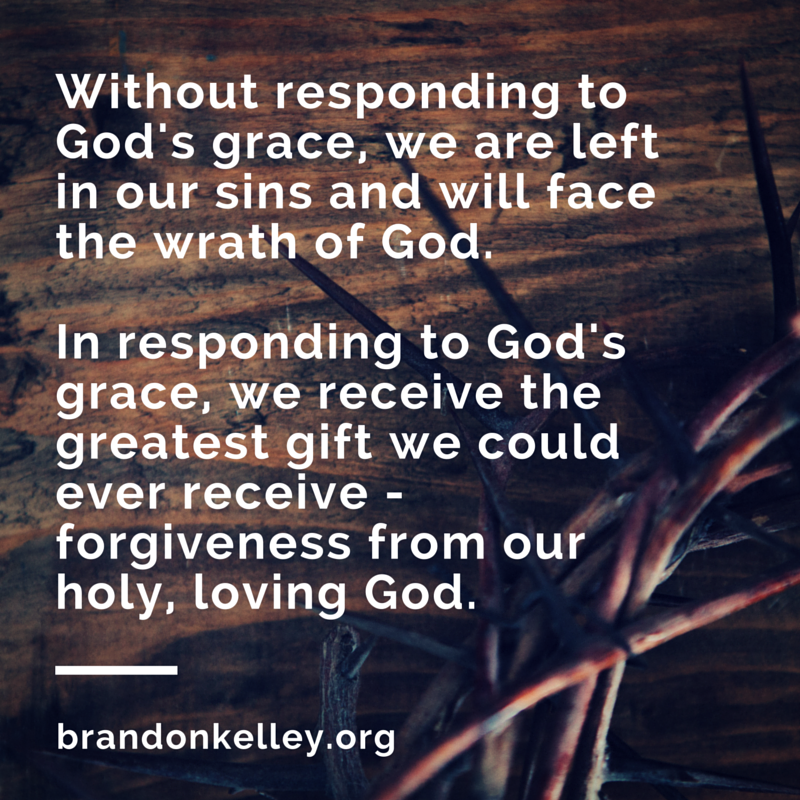Have you ever wondered, why was the cross even necessary? I’m sure you have. I know I have. It’s easy for us to assume we know the Gospel and for us to assume others know the Gospel as well. If you were asked by someone who has never read the Bible, “why was the cross necessary,” what would you say to them? Would you have an answer yourself? My hope is that this article will give you an answer – from Scripture – so you can know the answer for yourself and others. This changed the game for my understanding of the cross.
Picture this: a person has two seemingly opposing desires. Each desire is pulling this person in the opposite direction of the other desire. The struggle is real. This is the picture we get when we consider three specific characteristics of God.
3 Specific Characteristics of God
Allow me to be nerdy-theologian for a minute. I think it will help. Among many, many, many characteristics of God that we know of from Scripture, three stick out for the purpose of this discussion. What are they? I’m glad you asked.
1. God is holy.
He is completely set apart or “other” from everything else. He hates sin. He punishes sin. His holiness requires it. Just take a look at this passage:
In the year of King Uzziah’s death I saw the Lord sitting on a throne, lofty and exalted, with the train of His robe filling the temple. 2 Seraphim stood above Him, each having six wings: with two he covered his face, and with two he covered his feet, and with two he flew. 3 And one called out to another and said,
“Holy, Holy, Holy, is the Lord of hosts, The whole earth is full of His glory.”
4 And the foundations of the thresholds trembled at the voice of him who called out, while the temple was filling with smoke. 5 Then I said,
“Woe is me, for I am ruined!
Because I am a man of unclean lips,
And I live among a people of unclean lips;
For my eyes have seen the King, the Lord of hosts.”6 Then one of the seraphim flew to me with a burning coal in his hand, which he had taken from the altar with tongs. 7 He touched my mouth with it and said, “Behold, this has touched your lips; and your iniquity is taken away and your sin is forgiven.” (Isaiah 6:1-7, NASB)
No other characteristic of God is emphasized like His holiness is. That Hebrew idiom is powerful, “Holy, holy, holy!”
And do you notice Isaiah’s reaction to being in the presence of God? He is ruined! He is aware of his sin. He is not worthy to be in God’s presence. What does God do? He forgives him of his sin – God has a mission for Isaiah. But don’t miss the display of God’s holiness here.
2. God is love.
Scripture doesn’t tell us that God is just loving, but He IS love. He desires all people to come to repentance and be saved. Just look at this short verse and notice the declaration at the end.
“The one who does not love does not know God, for God is love.” (1 John 4:8, NASB, emphasis mine)
So the question becomes, what does God do? Does He just put His holiness on the back burner so that His love can take over? Well. No! The story isn’t finished.
3. God is righteous.
God is who He says He is. He must stay true to Himself and uphold His own standards. Because of this, He cannot just gloss over sin. But at the same time, He cannot just gloss over people. His holiness requires Him to punish sinners. His love requires Him to save sinners. His righteousness requires Him to do both. Take a look at this:
For I am not ashamed of the gospel, for it is the power of God for salvation to everyone who believes, to the Jew first and also to the Greek. 17 For in it the righteousness of God is revealed from faith to faith; as it is written, “But the righteous man shall live by faith.” (Romans 1:16-17, NASB)
In the Gospel, the righteousness of God is revealed. How is that? [shareable]God’s holiness requires Him to punish sinners. His love requires Him to save sinners. His righteousness requires Him to do both.[/shareable]
The Tension Inside of God
Feel the tension. God does. He must punish sin – we could (and have) even say that He must punish the sinner. At the same time, His love compels Him to offer the sinner forgiveness. After all, His desire is for all men to be saved (1 Timothy 2:4). And, as if this weren’t enough, He cannot just resolve the tension by letting down one side of His nature and going toward the other. He is required, because of His righteousness, to satisfy both His holiness (His wrath on sin – read John 3:36) and His love (His forgiveness of sinners).
So, what shall He do in the midst of this Divine Predicament?
Jesus, the Cross, the Holiness of God, the Love of God, the Righteousness of God
Hebrews tells us that without the shedding of blood, there can be no forgiveness of sin. Jesus, the perfect lamb, the perfect sacrifice, went to the cross on purpose. He came to earth to take the cross upon Himself, and, in the process, satisfy God’s holiness, God’s love, and show the righteousness of God.
The cross of Christ is a gift from God to you (and me). Every millimeter of your sin, every little spec of it was paid for on the cross. God has punished all your sin – past, present, and future. God’s love drove Jesus to come to earth and go to the cross – being the sacrifice that took your sin upon Himself.
In this, God has upheld His holiness – His punishment of sin; He has upheld His love – His offer of forgiveness of sinners; He has upheld His righteous nature – His need to do both. The tension inside of God is satisfied!
How to Access God’s Grace
Romans 5:1-2 says:
Therefore, since we have been justified by faith, we have peace with God through our Lord Jesus Christ. 2 Through him we have also obtained access by faith into this grace in which we stand, and we rejoice in hope of the glory of God.
Romans 10:8-9 says:
8 But what does it say? “The word is near you, in your mouth and in your heart” (that is, the word of faith that we proclaim); 9 because, if you confess with your mouth that Jesus is Lord and believe in your heart that God raised him from the dead, you will be saved.
Acts 2:37-38 says:
37 Now when they heard this they were cut to the heart, and said to Peter and the rest of the apostles, “Brothers, what shall we do?” 38 And Peter said to them, “Repent and be baptized every one of you in the name of Jesus Christ for the forgiveness of your sins, and you will receive the gift of the Holy Spirit.
Ephesians 2:8-9 says:
8 For by grace you have been saved through faith. And this is not your own doing; it is the gift of God, 9 not a result of works, so that no one may boast.
 There you have it. How do we respond to God’s grace? We respond to Him in obedience to
There you have it. How do we respond to God’s grace? We respond to Him in obedience to
what He has said. Faith, confession, repentance, baptism. Without responding to God’s grace, we are left in our sins and will face the wrath of God. In responding to God’s grace, we receive the greatest gift we could ever receive – forgiveness from our holy, loving God.
Don’t know what all this means? I recommend you talk to your pastor at your local church.
I’ll end with Paul’s words found in 1 Corinthians 1:18, “For the word of the cross is folly to those who are perishing, but to us who are being saved it is the power of God.”
[swt-fb-likebox url=”https://www.facebook.com/BrandonKelleyWriter” width=”800″ height=”250″ tabs=”timeline,events,messages” hide_cover=”false” show_faces=”true” hide_call_action=”true” small_header=”false” adapt_container_width=”true”]
